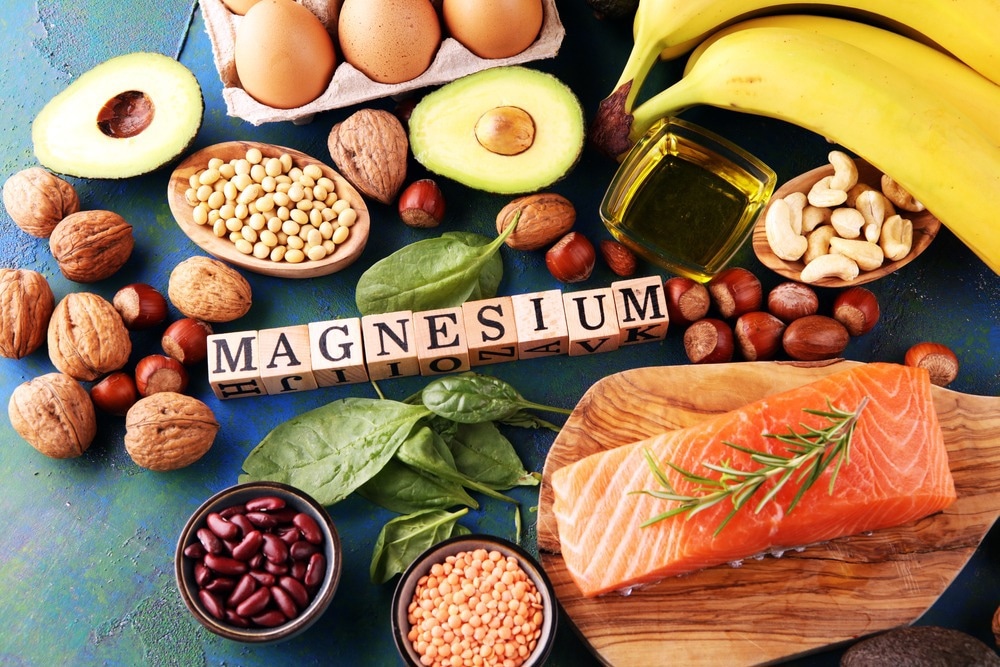In a recent study published in the European Journal of Nutrition, Australian researchers examined whether magnesium deficiency in the healthy middle-aged Australian population was independently or in combination with increased homocysteine levels associated with in vivo deoxyribonucleic acid (DNA) damage.
Background
Magnesium is one of the four most abundant minerals in the human body and plays an integral role in the repair and replication of DNA. It functions as a cofactor for various enzymes involved in the repair and replication of nucleic acids, as well as in bone development, neuronal function, protein metabolism, cell proliferation, and the regulation of blood pressure and blood sugar.
Close to 200 enzymes require magnesium to activate, and magnesium is also the cofactor for over 600 enzymes. Enzymes involved in nucleic acid metabolism, such as DNA ligases, endonucleases, and polymerase beta, depend on magnesium to function, making magnesium an essential element for sustaining genomic stability.
Magnesium deficiency can increase the risk of various diseases, including chronic degenerative diseases. On the other hand, the level of homocysteine, a product of methionine metabolism, in the blood is an indicator of neurodegenerative diseases such as Parkinson’s and Alzheimer’s disease. High levels of homocysteine are believed to prevent DNA repair mechanisms and increase DNA damage.
About the study
In the present study, the researchers investigated whether low levels of magnesium, independently or in conjunction with an increase in homocysteine levels, played a role in inducing DNA damage.
The study recruited participants between the ages of 35 and 65 years who were healthy, did not smoke, and had not been diagnosed with Alzheimer’s disease or mild cognitive impairment. Medications for grave illnesses such as cancer and the use of daily mineral, vitamin, or fish oil supplements beyond the dietary allowance recommendations in Australia were criteria for exclusion.
Blood samples were collected from all the participants following overnight fasting for six months and used to measure the levels of numerous biomarkers for DNA damage. The cytokinesis-block micronucleus assay was used to assess the levels of micronuclei, nuclear buds, and nucleoplasmic bridges in the blood.
The blood samples were also analyzed for micronutrients such as folate, vitamin B12, and homocysteine. Plasma isolated from the blood samples was also used to assess magnesium levels. Various statistical analyses were performed to understand the distribution of biomarkers and determine correlations between magnesium and homocysteine levels and the concentration of DNA damage biomarkers in blood.
Results
The study found that the levels of magnesium and homocysteine had significant inverse correlations with each other, but magnesium levels had positive correlations with folate levels. Furthermore, magnesium levels showed significant inverse correlations with the DNA damage biomarkers nucleoplasmic bridges and micronuclei. These correlations remained significant even after the analyses were adjusted for covariates such as age and sex.
Individuals who had a combination of high homocysteine levels and magnesium deficiency had higher levels of nucleoplasmic bridges and micronuclei in their blood than those with high levels of magnesium and low homocysteine levels.
These results indicated that magnesium is essential for protecting nucleic acids from endogenous genotoxicity. Other studies have also shown that growing fibroblasts in media deficient in magnesium results in numerous genomic changes, such as accelerated telomere shortening and an increase in senescence biomarker expression.
Furthermore, the researchers hypothesized that a chronic magnesium-deficient state might also increase oxidative stress, possibly by disrupting antioxidant function or DNA synthesis in the mitochondria. The increase in reactive oxygen species due to elevated oxidative stress could induce breaks in the DNA strands or cause the oxidation of the nucleotides in DNA, increasing the levels of DNA damage biomarkers.
Homocysteine is formed when methionine is metabolically converted to cysteine. Decreased levels of vitamin cofactors such as vitamins B6 and B12 and folate, which are essential to the folate-methionine metabolic pathway, can also increase homocysteine levels. Given that low magnesium levels, in turn, result in a decrease in folate levels, this could potentially explain the negative correlation between magnesium and homocysteine levels.
While high levels of homocysteine have been linked to neurodegenerative disorders such as Alzheimer’s disease and cardiovascular disorders, studies have also suggested that the ability of homocysteine to act as a pro-oxidant can contribute to DNA damage due to oxidative stress, potentially explaining the mechanisms linking homocysteine to chronic degenerative diseases.
Conclusions
Overall, the study established that low magnesium levels independently and along with high homocysteine levels cause increased DNA damage. The increase in DNA damage biomarkers associated with low magnesium levels indicated an elevated risk of age-related diseases such as cancers and neurodegenerative disorders.
Furthermore, the results suggested that an optimal intake of vitamin B12 and magnesium can help maintain the integrity of the genome and lower homocysteine levels, contributing to healthy aging.


